MercoPress. South Atlantic News Agency
Tag: fertilizers
-
Thursday, June 29th 2023 - 02:32 UTC
Brazil fertilizer consumption picking up as farmers replenish stocks and global prices drop 40%
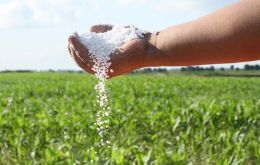
Consultants and banks estimate that fertilizer consumption in Brazil will increase this year, with projections suggesting a range of 2.5% to 10% growth in deliveries. This increase is driven by producers’ need to replenish the volumes used in their crops as input prices have fallen.
-
Friday, June 23rd 2023 - 10:36 UTC
Brazil this year is increasing purchase of fertilizers from Russia
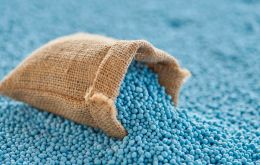
PhosAgro boosted exports of fertilizers by 8% in the first four months of this year compared with the same period in 2022, according to a report from GlobalFer, which specializes in the industry's info.
-
Thursday, August 25th 2022 - 10:00 UTC
Fertilizer congress reveals Brazil's efforts in accessing the input and the need to promote a national industry
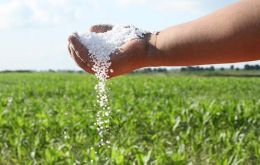
The ninth edition of the Brazilian Fertilizer Congress, organized by ANDA, (Brazilian National Fertilizers Organization) underscored the main difficulties faced by the agriculture sector in having access to fertilizer at a time of global logistics chaos caused by the Covid-19 pandemic and Russia’s invasion of Ukraine.
-
Monday, August 22nd 2022 - 09:33 UTC
Santos outperforms other Brazilian ports, despite a drop in overall throughput
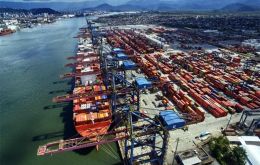
As a lingering consequence of the covid-19 pandemic and a slowdown of the Chinese economy, cargo throughput in Brazilian ports fell by 3.3% in the first half of the year compared to the same period of 2021. On the other hand, the Port of Santos recorded an increase of 5.6% over the same period. The data are included in a report published by Brazil’s National Waterway Transportation Agency (Antaq).
-
Monday, August 15th 2022 - 09:50 UTC
Russia almost doubles exports' value to Brazil in first half of 2022: mainly fertilizers and fuel

Russia almost doubled the value of its exports to Brazil in the first half of this year and has climbed to fifth supplier of Latin America's largest economy. This despite the trade, financial and diplomatic sanctions imposed on Russia by the United States, the European Union and the United Kingdom following its invasion of Ukraine.
-
Wednesday, July 27th 2022 - 09:45 UTC
“Brazil needs fertilizers to help feed the world, we can't condemn Russia” admits Bolsonaro
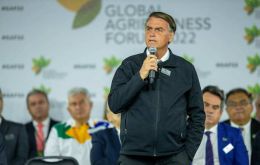
Brazilian president Jair Bolsonaro reiterated his opposition to economic sanctions against Russia and described the Brazilian government's position in the Ukrainian conflict as one of “equilibrium” since Brazil needs a steady supply of Russian fertilizers for its powerful agribusiness sector.
-
Thursday, June 30th 2022 - 09:40 UTC
Putin ensures Brazil a steady fertilizer supply; but prices have soared from US$ 360 to US$ 650 a ton
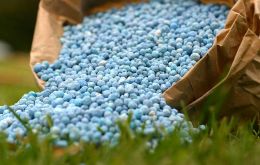
President Vladimir Putin in a phone call with Jair Bolsonaro said Russia will ensure that fertilizer trade with Brazil remains uninterrupted. Fertilizers, especially nitrogen, phosphorus, and potassium, are widely used by Brazilian farmers and have made the country a world food powerhouse.
-
Wednesday, April 20th 2022 - 09:30 UTC
Brazil continues to receive Russian fertilizers although in erratic shipments
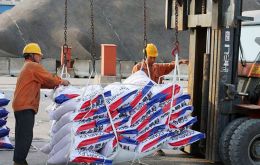
Some 600,000 tons of fertilizer, 50% of which potash and of Russian origin were on their way to Brazil during the first week of April. Despite almost two months of war, the flow of Russian fertilizer to Brazil continues, according to consultancy StoneX.
-
Wednesday, April 6th 2022 - 09:10 UTC
Belarus reopens sales of potash; extent of Western sanctions on Russian fertilizers not clear
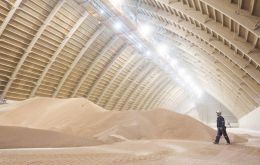
Belarus announced that it is authorizing licenses for the export of potash beginning this month, according to the official news agency RIA. Russia's close ally is the world’s third-largest producer of potash, widely used in soy production. Belaruskali, a local state-owned company, is among the world’s leading companies in the field.
-
Friday, March 25th 2022 - 09:29 UTC
Potash prices have more than trebled and keep climbing

Potash prices, a key element used as fertilizer have more than trebled compared to a year ago. The mineral which was trading at US$ 300 a ton in early 2021, has now skyrocketed to US$ 1,100 a ton, and with not many prospects of returning to normal levels given the ongoing month-long war in Ukraine following on the Russian invasion.
